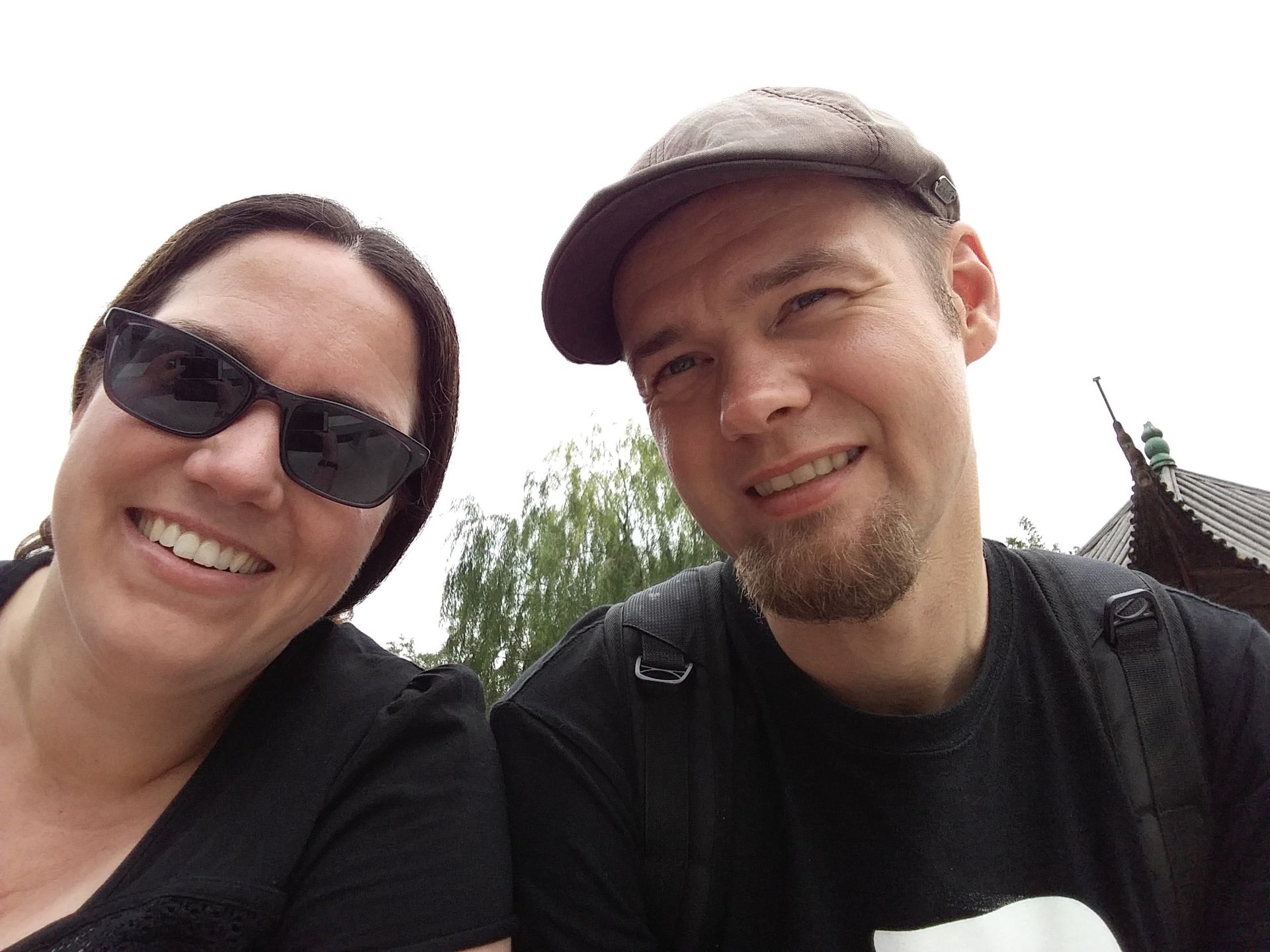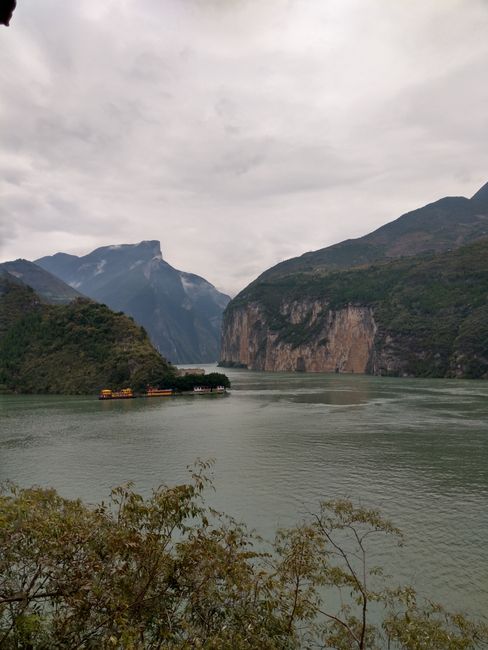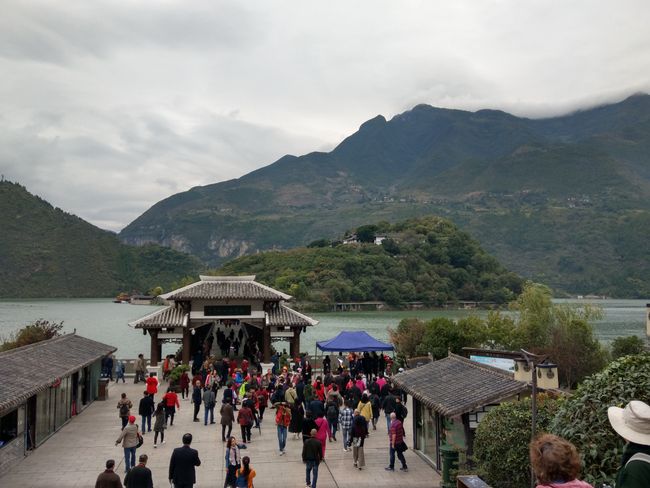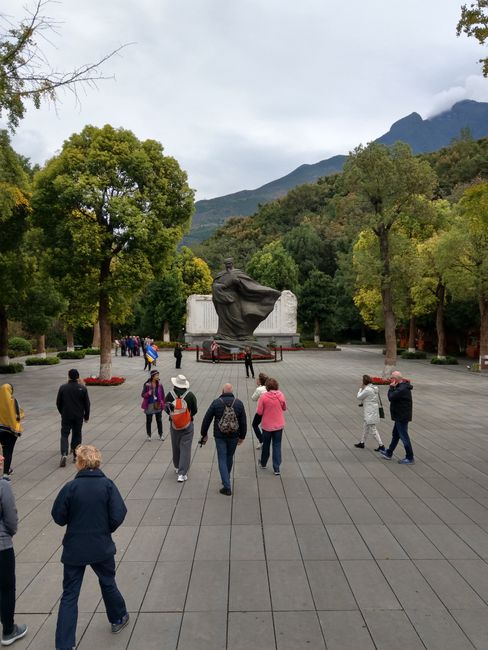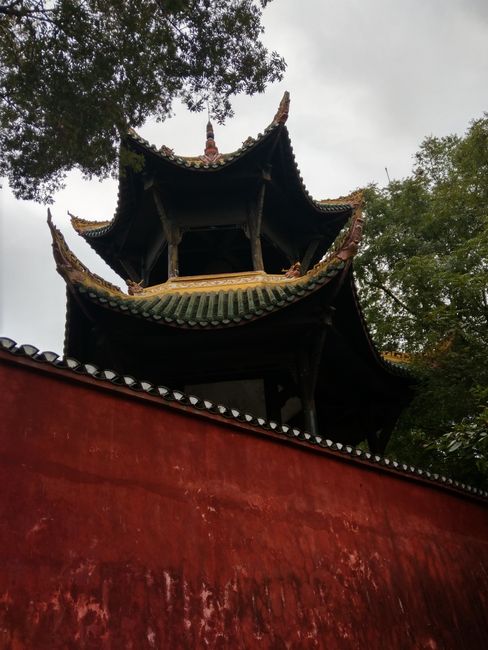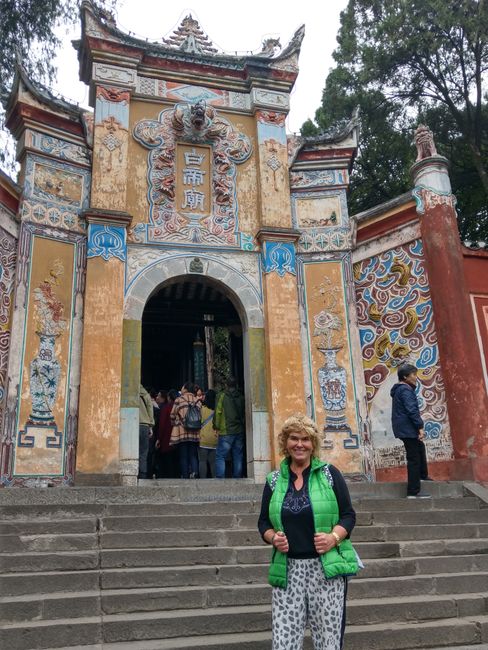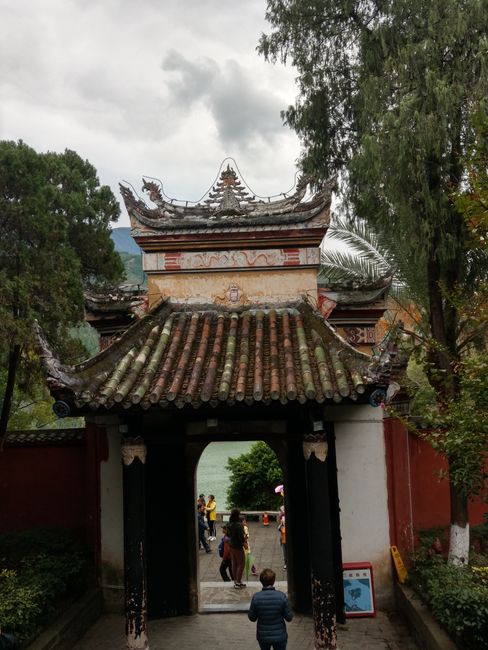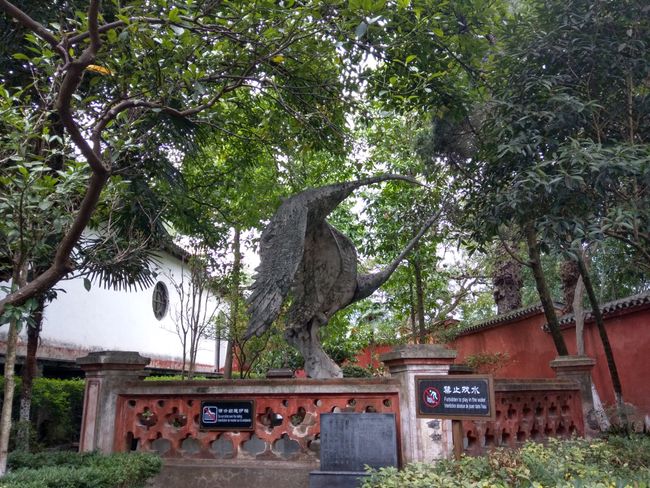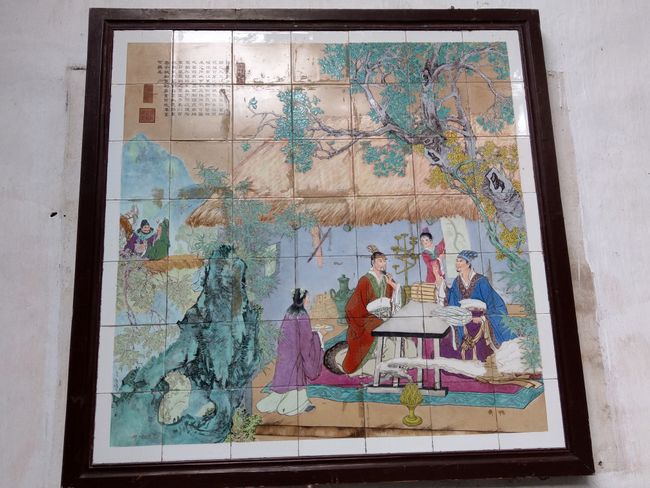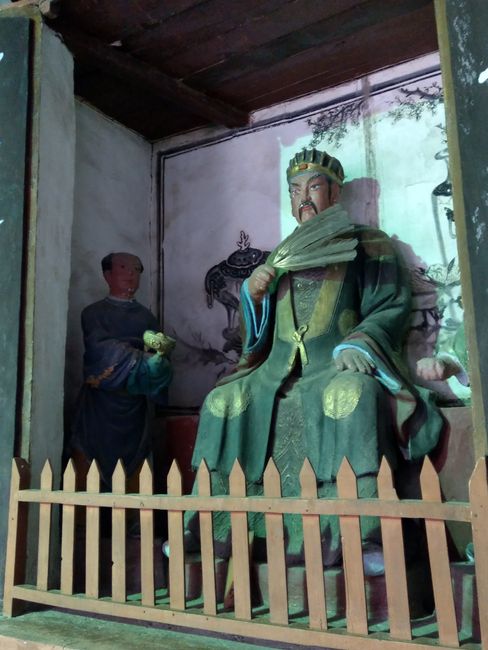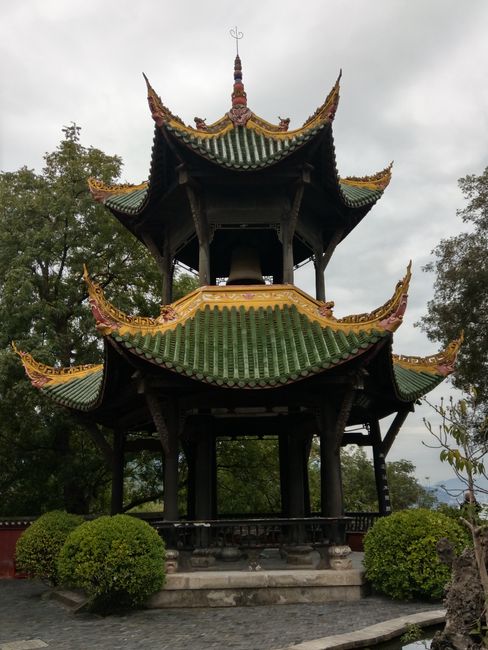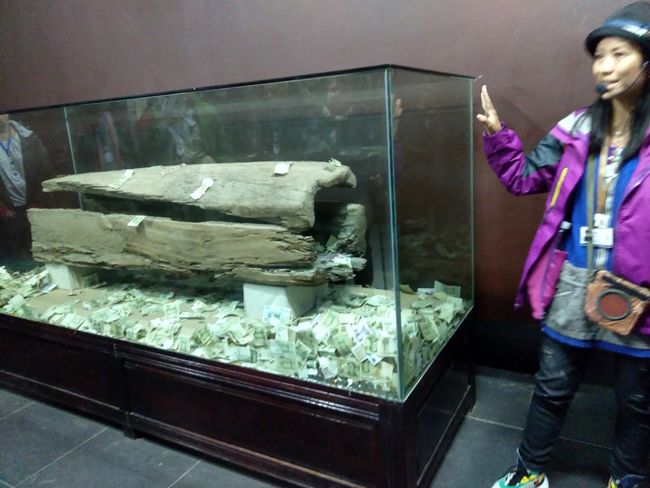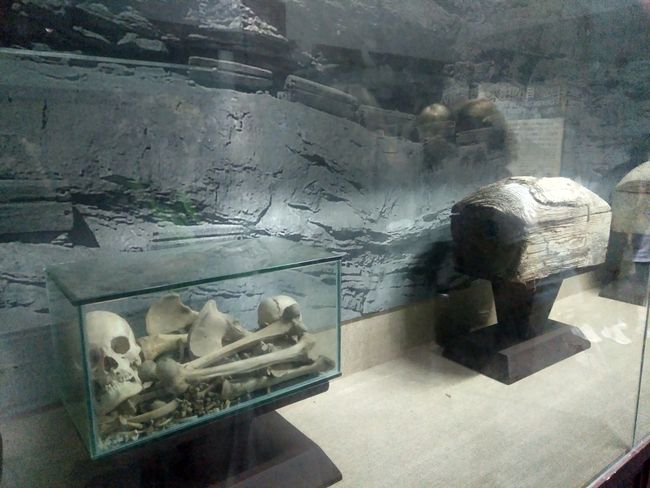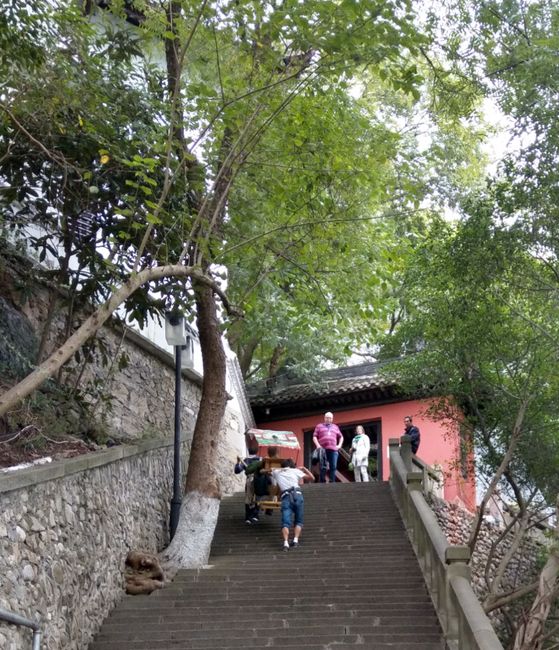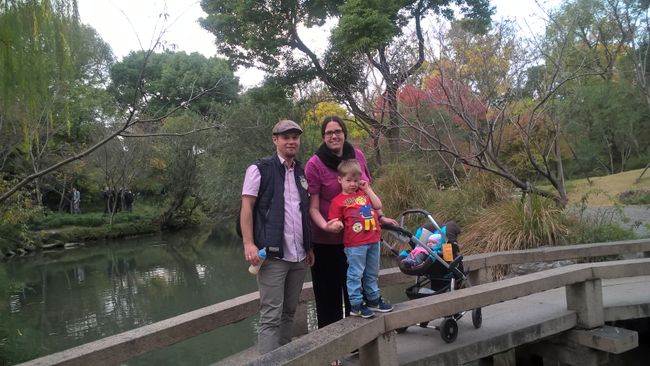
muhsensontour
vakantio.de/muhsensontour
White Smoke
Ku kandziyisiwile: 18.11.2018
Tsarisa eka Xiphephana xa Mahungu
Sunday, 21.10.2018
There were two shore leaves planned again. One in the morning, one in the afternoon. Bái dì chéng (白帝城) with its temple of the same name was supposed to be the first one. Bái dì chéng means 'White Emperor City' and is located at the entrance of the Three Gorges.
It is said that the area was once surrounded by white fog, which gave it a mysterious yet peaceful appearance, just like an emperor should. It is also said that some have seen a white dragon come from there, the symbol of the emperor, and the warlord Gongson Shu (公孙述) took this as an auspicious sign and declared himself the emperor of Chengjia. He founded the city and called himself the White Emperor.

In the entrance area of the temple stands a monumental statue, but it does not show the emperor, no, it shows the Minister Zhu Geliang. This minister once housed the son of the White Emperor from Chengdu in this temple. This son went to war and was predicted to be defeated. He entrusted the minister to take the son to safety and possibly educate him. The minister did as he was told and proved to be very loyal and cunning.
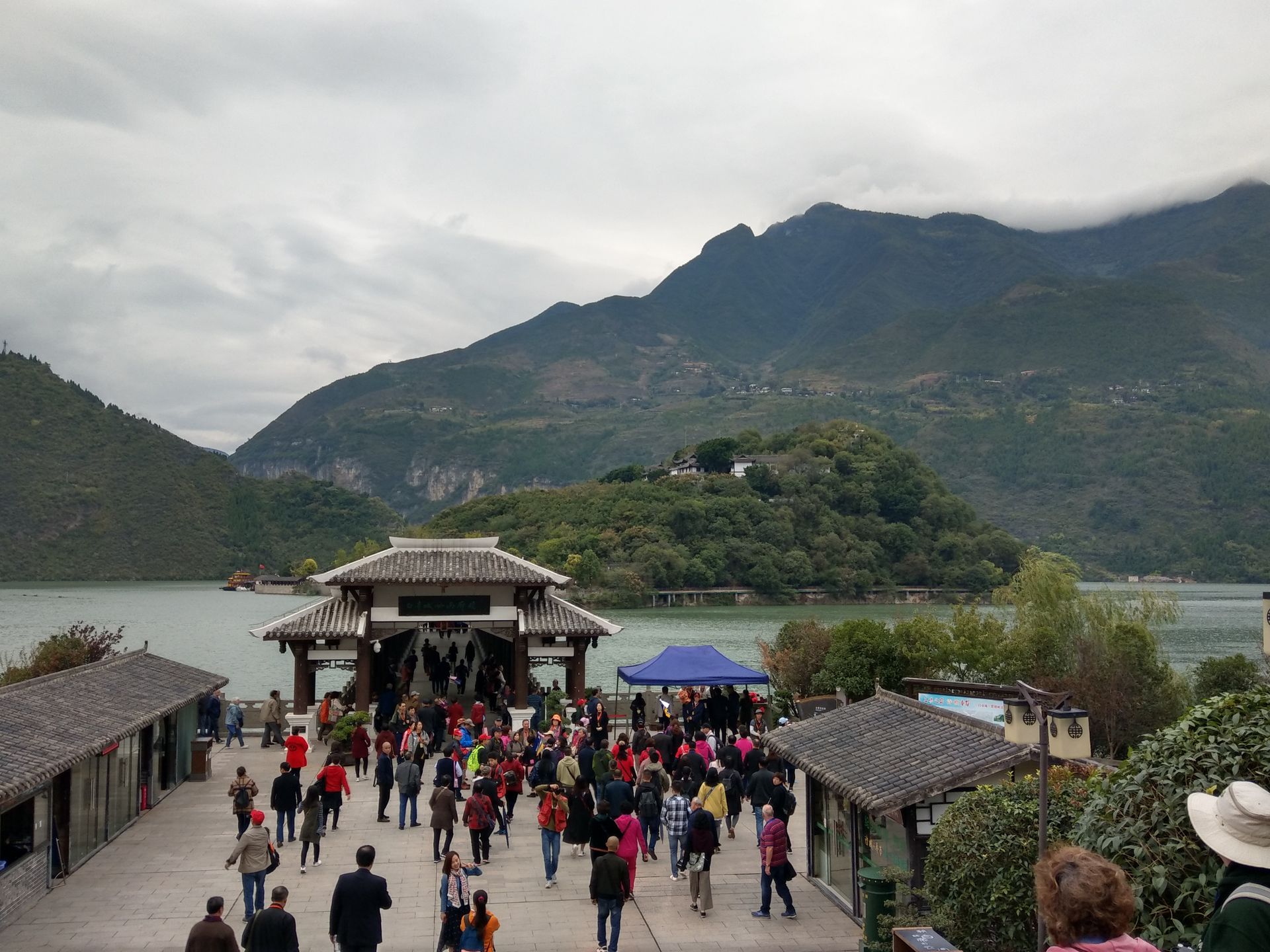
To reach the temple complex, you have to cross a bridge again, this time a solid one, and then climb several hundred stairs. If you don't want to climb them, you can also be carried by two strong Chinese men on a bamboo construction.
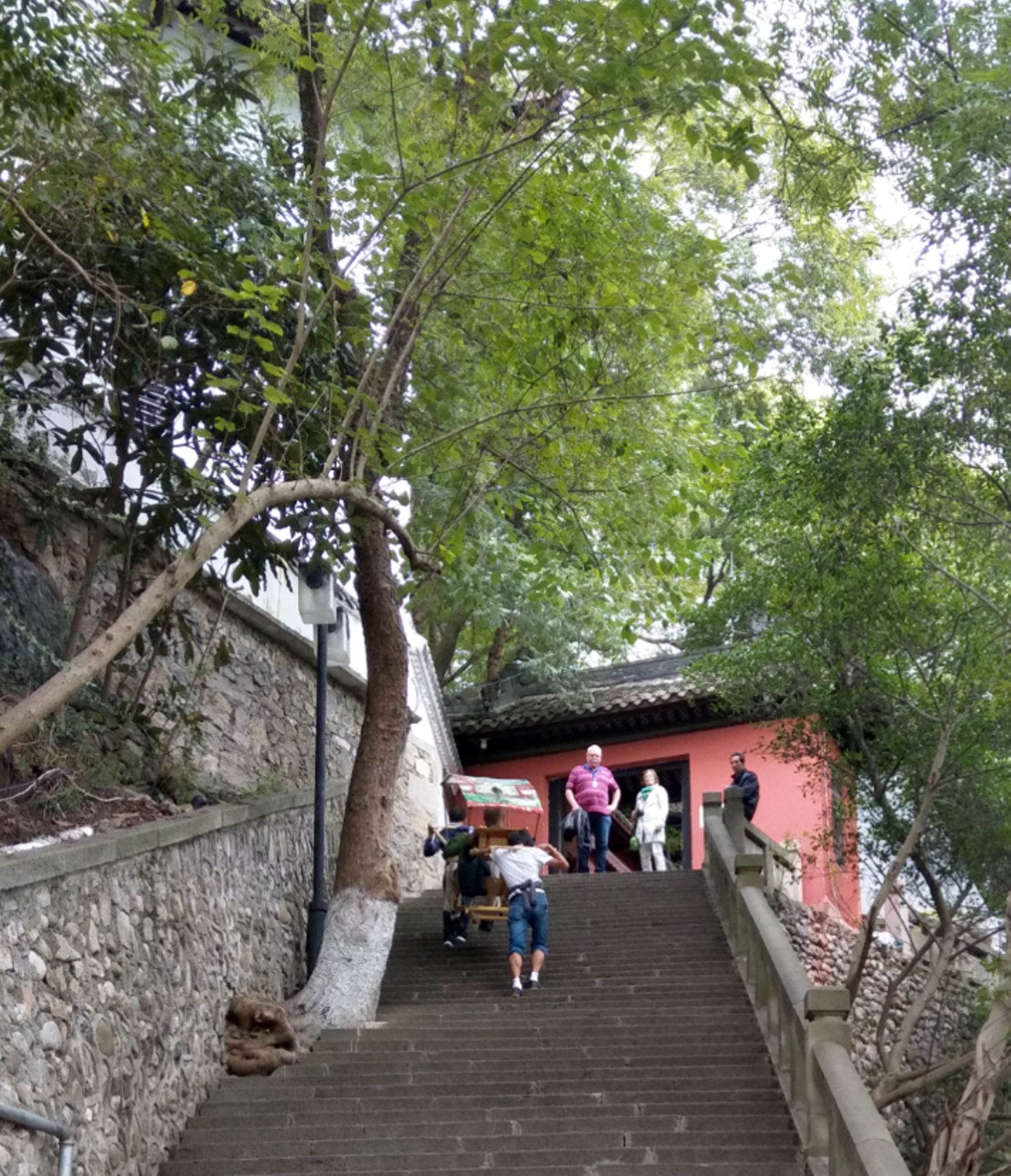
The temple consists of several buildings again. There are deities and various scenes from the past depicted.


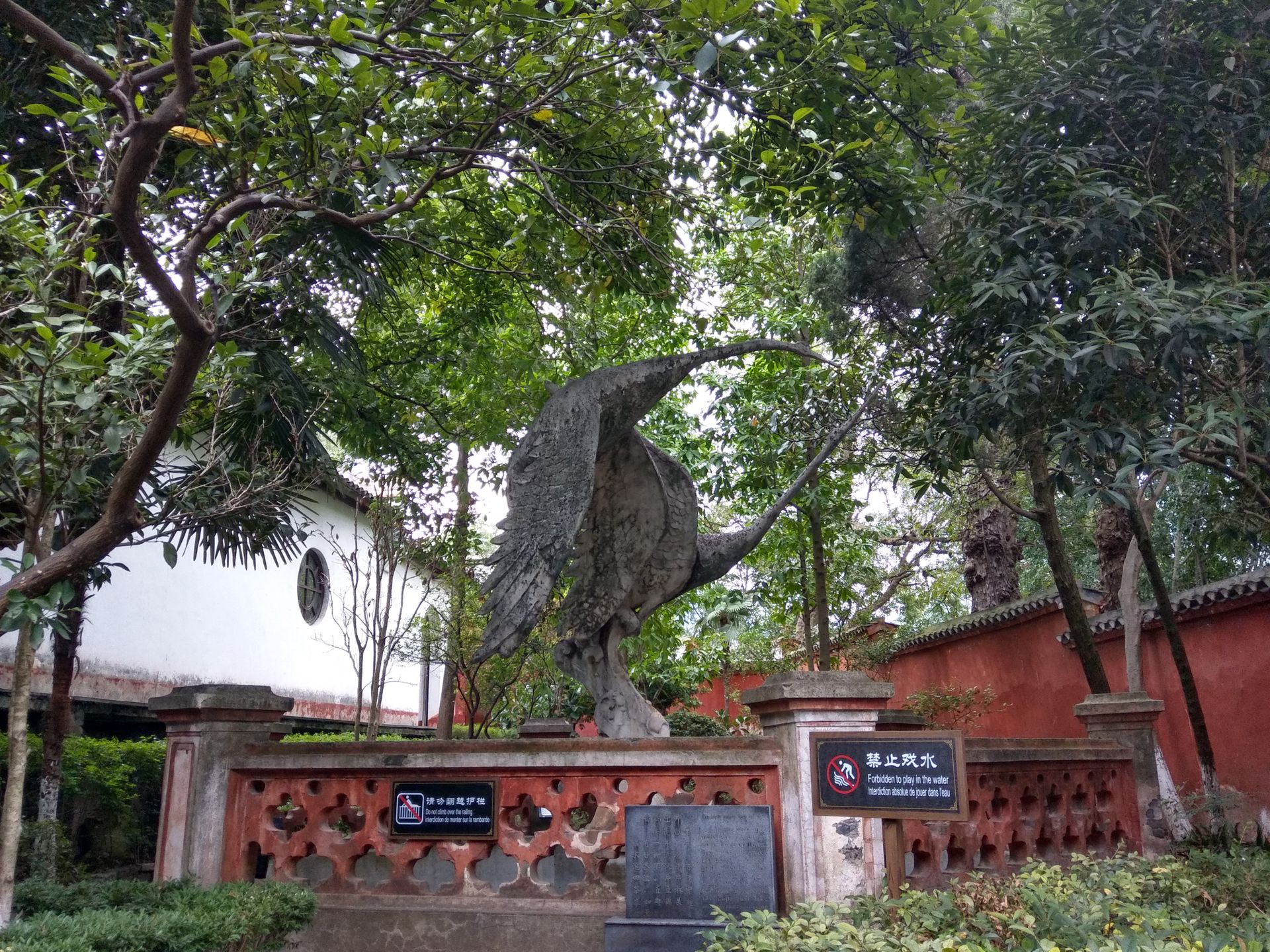


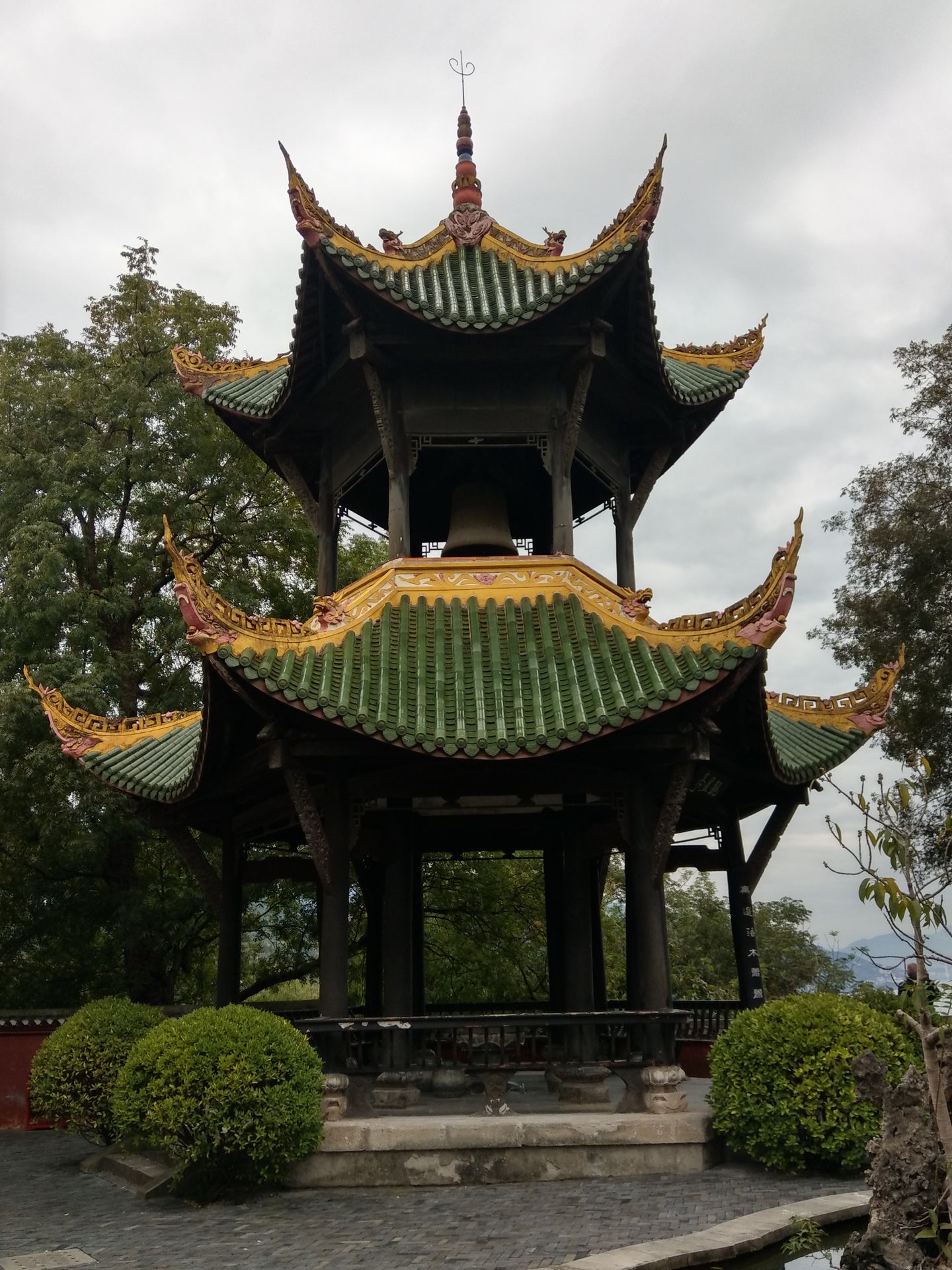
I had the same thought when I saw the colleague, but I didn't dare to express my thoughts, because as we know, Comrade Mao is still something like the grandfather of the nation, and we don't make jokes or stupid remarks about him, otherwise there will be trouble.

The next special feature were the wooden hollow trunks. These served as coffins 2000 years ago. The special thing about them is that the dead were first buried and then dug up after decomposition. The bones were then put in these wooden cylinders and put into small caves in the cliff walls of the gorges.

How exactly the inhabitants managed to do this, or more precisely, how they got to such an exposed place, is still unknown.
After descending on the back of the temple, a view opens up that is otherwise only seen on the 10RMB note. The entrance to the first of the Three Gorges, the 'Qutang Gorge' (瞿塘峡, Qutáng Xiá).

Even though we did not see a white dragon, this was a successful trip!
Tsarisa eka Xiphephana xa Mahungu
Nhlamulo
